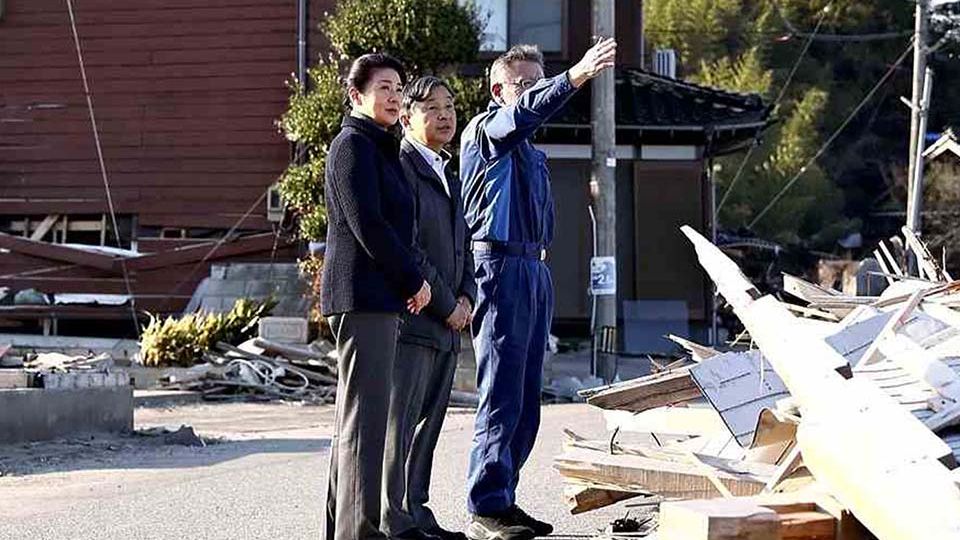May 2, 2024
TOKYO – Wednesday marked five years since the Emperor’s accession to the Chrysanthemum Throne and the beginning of the Reiwa era in 2019.
Despite the COVID-19 pandemic that restricted Imperial activities in the past few years, last year the Emperor was able to make his first goodwill visit overseas since his accession. This spring has already seen the Emperor visit areas affected by the Noto Peninsula Earthquake twice in two months. The Emperor also shows his own style in conducting international exchanges and offering hospitality to guests. Together with the Empress, the Emperor is seeking a “Reiwa style” in their duties.
At Haneda Airport on April 12, the Imperial couple were aboard a plane set to depart on a special flight for their second visit to the quake-hit area when trouble with the aircraft was detected.
According to sources close to the Imperial Household Agency, as they waited aboard for a substitute plane, an aide suggested to the Emperor and Empress that they cut some scheduled activities to make up for the one-hour delay. However, they preferred to cut down their rest time and did not mind returning to Tokyo later than scheduled.
“I felt their strong feeling for the affected areas,” the aide recalled.
The Emperor and Empress became deeply concerned about the areas immediately after the devastating quake occurred and wished to visit all the hardest-hit areas even if that meant they would have to make multiple visits. At the same time, they took into consideration the burden on those places and made their first visit on March 22, 81 days after the New Year’s Day quake.
Performing duties online
It was in December 2019 that all the events and ceremonies regarding the accession were completed. After the series of Imperial events for the New Year ended in 2020, the Emperor and Empress were about to embark on their regular official duties when the pandemic spread.
As the pandemic forced the cancellation of official duties and visits, the Imperial couple started remote activities, such as an international conference on water-related disaster risk reduction in August 2020 and remote visits to regional hospitals as well as areas affected by torrential rainfall in Kumamoto Prefecture that year. The number of events in which they remotely participated reached 23 by January 2023.
“[By using remote work equipment] it is possible to pay a visit to remote islands as well as hilly and mountainous areas,” the Emperor said at a press conference on his birthday in February this year.
Japanese food, sake
Some changes have been observed in events at the Imperial Palace as well. When meeting distinguished guest couples from abroad, the Imperial couple used to receive them separately, yet now there are times when the Emperor and Empress are seen sitting together at the same table with the guests. Hors d’oeuvres at luncheons with distinguished guests have changed from Western cuisine to traditional Japanese food, and sake has been added to the list of drinks for toasts.
“It [reflects] the Imperial couple’s kindly thoughts for guests to have a quality time,” the aide said.
The Emperor is attentive to the health of the Empress, who is still recuperating, and they always carry out duties together even during visits to disaster-hit areas. On the other hand, there are times during their official visits when the Empress livens up conversations by expanding on the topic.
“The Emperor and Empress support each other and carry out their duties. Their activities will be even more full-scale from now on, and the Emperor’s image as a symbol will become clearer,” said Hideya Kawanishi, an associate professor at Nagoya University who specializes in the system in which the Emperor is a symbol of the state.

